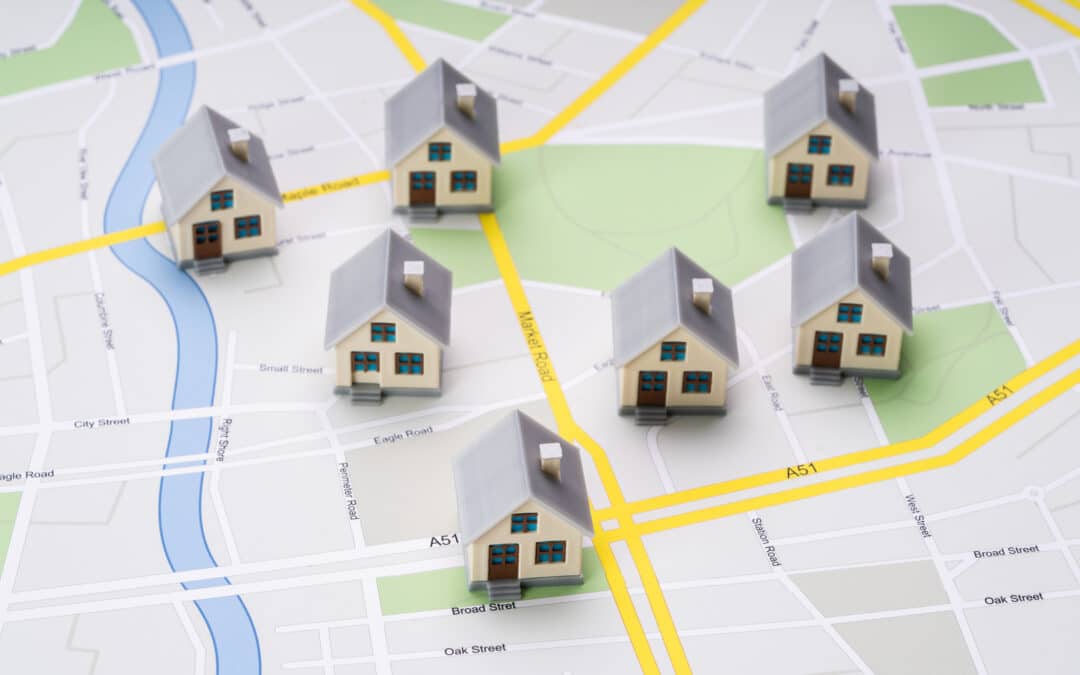Big data may seem like a buzzword, but its effects have far-reaching consequences and the real estate industry is not exempt from this fact. As the real estate industry has grown over the last few decades, so, too, has the need for increased data and better data analytics to predict where the market is headed. Understanding how big data affects the real estate industry can give your business a leading edge over the slower-responding competition.
THE THREE VS OF BIG DATA
High-volume, high-velocity, and high-variety are what are commonly referred to as the “three Vs” of big data. To better understand the role big data plays in the real estate industry, consider the implications of the three Vs:
- High-volume – Processing vast amounts of data in real estate such as mortgage applications, developer deals, foreclosure rates, interest rates, etc. The ability to track all of the pertinent information in near real-time can help guide decisions at every level.
- High-velocity – The rate at which the real estate data comes and is processed can affect your company’s ability to monitor and react to trends before others. This can give your company valuable insights into which direction to head in a shorter amount of time.
- High-variety – Obviously, the ability to access data from multiple sources will help you understand trends better as you are able to see more of the big picture instead of following a single source of information which could be misleading.
GONE ARE THE OLD WAYS OF PURE “GUT INSTINCT”
Before tools for analyzing big data became available, most of the success of organizations in the real estate industry was based upon “gut instinct.” While honing your instinct is still an important factor in decision-making, big data can help you determine the level of risk involved in trusting your gut. The insights gained from big data can help you better attend to the market and your customers’ needs and goals, thereby increasing customer satisfaction.
In a recent study done by the National Association of Realtors, 51% of participants said they found their new home online. Big data is driving the explosive online real estate market by measuring and recommending solutions to many of the desires of potential homebuyers. For instance, finding information on amenities, schools, noise-levels, traffic in the area, and more data points that go into what a homebuyer considers when looking for their dream home helps to eliminate a lot of confusion and wasted time. Homebuyers, realtors, and investors now have access to a plethora of information that streamlines the process and allows them to make better decisions in a shorter period of time than ever before.
Some of the greatest benefits of using big data in every area of the real estate industry include:
- Mitigating Risks – Realtors, buyers, and lenders can mitigate risk by accessing important information about a property or buyer in minutes, not days.
- Better Insurance Offerings – Insurance companies can offer better services and products to customers by using big data to analyze more current data on risks.
- Streamlined Evaluations – Realtors and appraisers can use enhanced comps to more accurately determine the price of a property. Additionally, homebuyers and investors can put forth more informed offers. Finally, financial institutions can use better evaluations to calculate loans and minimize the risk of loss.
- Marketing Strategy – Realtors and lenders can act on trends way ahead of the curve and respond to them more accurately.
- Better Understand Needs – Whether it is a realtor or lender, using predictive analytics can help each business better understand their customer’s needs and offer them better solutions.
THIS IS ONLY THE BEGINNING OF BIG DATA IN REAL ESTATE
The future of big data in real estate will continue to expand in the coming years. New innovations will reveal even more pertinent data allowing more streamlining of processes across the entire industry. We can expect to see impressive advancements in the following areas:
- PropTech – Using technology such as satellite imaging to analyze land and identify the best areas for the implementation of renewable energies.
- Building Automation Technology – A new generation of network devices that connect and collect data in new ways. This can include property sensors that alert property managers about maintenance or repairs needed and even automating some of those processes, among other things.
- Intelligent Scouting Features – The ability to better capture, store, and display critical information for nearly effortless property scouting. This may include Virtual Reality tours of both the inside and outside of properties to reduce the need for physical visits and inspections.
- Lookalike Modeling – Using existing customer data to better identify key data points that can help guide your lead generation strategy.
As a real estate professional, utilizing big data now can help your business thrive in the new age of technology and the Internet of Things (IoT) and help you adapt to the new technologies being developed. At Helios, we want to bring big data to you in ways that are manageable and actionable. Contact us today to discuss how big data can help you!




Recent Comments